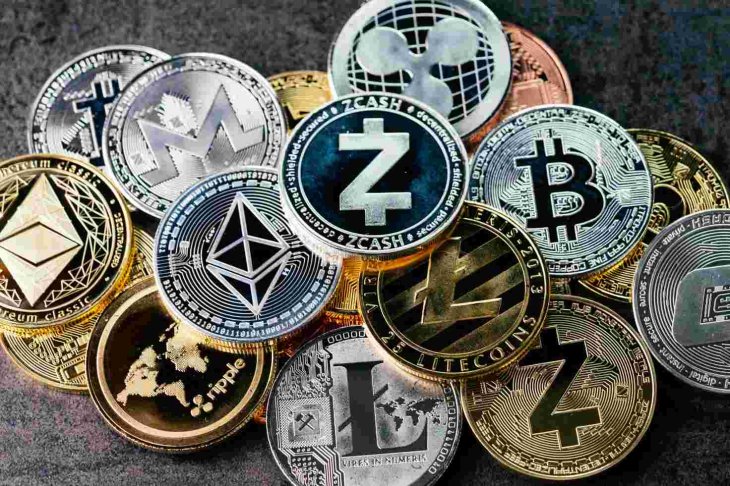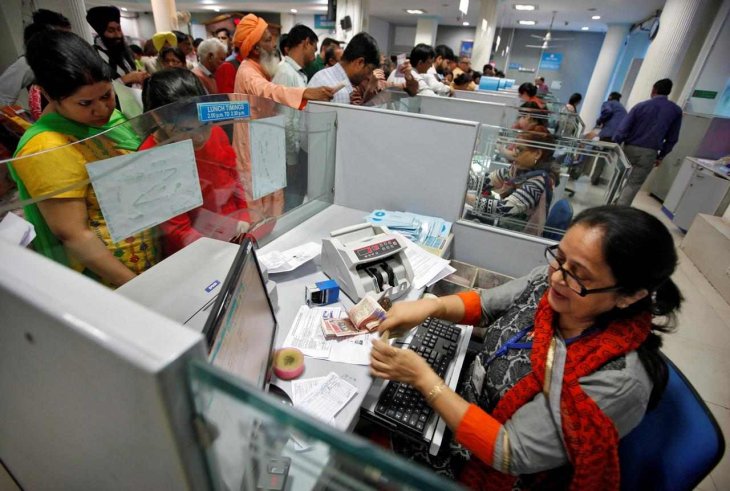Fintech: Everything To Know About The Fastest-Growing Industry
Dhir Acharya - Mar 12, 2021

Fintech: this post explains the definition, applications of financial technology, and provides information around the fastest-growing industry in the world.
Fintech is a term combining finance and technology, fintech meaning refers to a business using technology to automate or enhance financial processes and services. The term is now widely used and this industry is growing fast to serve not only businesses but also consumers. However, if you are not familiar with this term, this post will tell you everything you need to know about financial technology.
Table of Contents

How fintech works
In fact, financial technology is not as new as you may think as technology has always been a part of the financial world, such as the introduction of ATMs, credit cards, finance apps, and electronic trading floors.
Each project, each app has a different use of financial technology. But some of the newest advances are using blockchain, data science, and machine learning algorithms to handle everything from processing credit risks to running hedge funds.
Who uses fintech
Before getting to who uses financial technology, you need to know its applications in the real world.
Banking
Mobile banking has become a large part of the financial technology industry. In terms of personal finance, consumers are having a greater demand for easy digital access to bank accounts from a mobile device. These days, most banks offer a mobile banking feature, especially when neobanks are rising.
A neobank doesn’t have physical branch locations, it serves customers with payment, savings, and checking services and loans only on mobile and digital platforms. Varo, Simple, and Chime are some of the existing neobanks.

Cryptocurrency and blockchain
Along with fintech, we have also witnessed the birth of blockchain and cryptocurrency. Crypto exchanges such as Coinbase matching sellers with buyers of Altcoins and Bitcoin.
Cryptocurrency and blockchain are two examples of financial technology outside of traditional banking.
Investment and savings
In recent years, there have been a lot more investing and savings apps due to the appearance of financial technology. And fintech companies like Acorns, Stash, and Robinhood have broken the barriers to investing. In spite of their different approaches, they offer a combination of savings and easy investing to help consumers get started with the markets.
Machine learning and trading
Machine learning has become a very important part of financial technology as it helps with predicting the market trend, which results in billions of dollars of revenue. It can run a huge amount of data using algorithms to spot risks and trends.

Payments
This is one of the most common applications of fintech with payment firms like Venmo having changed how we do business. Now, it’s very easy to send money digitally to any place in the world. Apart from Venmo, Paypal, Square, Stripe, and Zelle are among the popular payment companies.
Lending
Financial technology is overhauling credit by making risk assessment seamless, access easier, and approval processes faster. Today, billions of people from various parts of the world can apply for a loan from their smartphones. Besides, new data points, better risk modeling are expending credit for underserved people.
In addition, consumers can view credit reports several times per year without hurting their score, increasing the transparency of the backend of the lending world for everyone.
Insurance
Insurtech is becoming an industry of its own, but now, it’s still a part of fintech. Fintech startups are partnering with conventional insurance firms to automate the process and help them expand coverage.
So, in the world of financial technology, there are two main users: business-to-business (B2B) and business-to-consumer (B2C).
In B2B, businesses use financial technology and smartphones to obtain loans, financing, among other financial services. Besides, customer relationship management services and cloud-based platforms offer enterprise-oriented services allowing businesses to access and manage financial data.
B2C uses of fintech include apps like Venmo, PayPal, and Apple Pay that let users transfer money digitally. Meanwhile, budgeting apps like Mint let users keep track of their finances. And there are apps for digital credit and insurance services.

How fintech is shaping the future of banking
Financial technology is shaping the future of banking in three ways:
- Smart solutions: with increasing needs, the banking industry has to search for new, robust, quick, flexible, and abrupt solutions. Banks chose to rely on financial technology to address the urgent needs of customers. Fintech has developed highly efficient solutions for banks.
- Better customer experience: financial technology focuses on merging digital trends with customers’ expectations to empower customers digitally. With financial technology, consumers have 24/7 access to banking services.
- Quicker reachability: currently, banks are aiming at making more people use open development as well as Software-as-a-Service (SaaS) solutions. This helps banks in integrating and streamlining operational capabilities toward mobile delivery advantage.

Indian fintech
India is one of the fastest-growing fintech markets in the world with the highest adoption rate alongside China. In 2019, India’s digital payments clocked a total value of $65 billion, which may increase at a compounded annual growth rate of 20% by 2023.
In addition, India has taken over China to become the top fintech funding target market in Asia with investments worth $286 million across 29 deals while China got $192.1 million across 29 deals in the first quarter of 2019.
Best of all, Indian fintech firms can reshape the world of financial services in 3 ways:
- Financial technology startups will likely reduce costs while improving the service quality.
- The industry will develop innovative, novel models for risk assessment.
- The industry will come up with more stable, secure, and diverse services.
Fintech jobs
If you are interested in this industry and want to get a job in financial technology, the following list consists of the 10 best options for you.
- Blockchain developer
- App developer
- Financial analyst
- Product manager
- Compliance expert
- Cybersecurity analyst
- Quantitative analyst
- Culture champions
- Business development manager
- Data specialist
All in all, this post has covered a lot of information and content around fintech, or financial technology. It is a fast-growing industry and will continue to play more important roles in our lives in the future. We hope that the post has helped you got the first, basic understanding of the term.
Featured Stories

Features - Jul 01, 2025
What Are The Fastest Passenger Vehicles Ever Created?

Features - Jun 25, 2025
Japan Hydrogen Breakthrough: Scientists Crack the Clean Energy Code with...

ICT News - Jun 25, 2025
AI Intimidation Tactics: CEOs Turn Flawed Technology Into Employee Fear Machine

Review - Jun 25, 2025
Windows 11 Problems: Is Microsoft's "Best" OS Actually Getting Worse?

Features - Jun 22, 2025
Telegram Founder Pavel Durov Plans to Split $14 Billion Fortune Among 106 Children

ICT News - Jun 22, 2025
Neuralink Telepathy Chip Enables Quadriplegic Rob Greiner to Control Games with...

Features - Jun 21, 2025
This Over $100 Bottle Has Nothing But Fresh Air Inside

Features - Jun 18, 2025
Best Mobile VPN Apps for Gaming 2025: Complete Guide

Features - Jun 18, 2025
A Math Formula Tells Us How Long Everything Will Live

Features - Jun 16, 2025
Comments
Sort by Newest | Popular